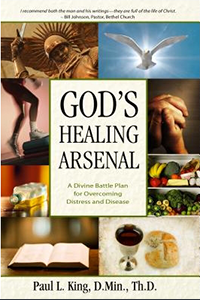One of the biggest logs in our eyes we all tend to have is our assumptions. An assumption is basically defined as something we take for granted or believe to be true. We can be sincere in our assumptions, but sincerely wrong. My assumptions sometimes are right, but more frequently they get me into trouble.
Recently, I was utilizing my homeowner’s warranty to fix my garage door for which a spring had broken. I checked what was covered under the warranty—and yes, the contract stated springs were covered. I called to make sure, and yes, the service person assured me they were covered. But when it was fixed, I was told it was not covered—because it was a part of the track assembly that was not covered. I went round and round with the service person, but because of the technicality, they would not cover it. I had assumed the wrong thing. I had assumed the best, to no avail.
We make assumptions of people as well—sometimes true, sometimes false assumptions:
- Assuming what the other person is thinking or feeling.
- Assuming the motives of the other person—good or bad.
- Assuming we understand what the other person is saying and meaning.
- Assuming others understand what we are saying or meaning.
- Assuming something that seems apparent, but we lack all the information.
- Assuming the worst.
- Assuming the best.
You probably know the old truism (in not so appropriate language) about assumptions. I will not repeat it here, but it means that we put ourselves into some embarrassing and upsetting situations that create misunderstanding and conflict with others. I am often guilty of that log in my eye.
One time someone sent me a text about a planned proposal from someone else that affected me negatively. He assumed I knew about it, but I knew nothing about it, so it was a great shock to me. Since it the text came from that person, not the other person, I assumed he had planned it himself, or that they were ganging up on me together. Neither were true. Because we both had assumptions that were wrong (and they were communicated through texts, which is always a bad idea), it created great conflict.
Sometimes we assume the worst, and we end up with egg on our face. On the other hand, sometimes we are counseled to assume the best of a person or situation, claiming Scripture says, “Love . . . believes all things” (1 Corinthians 13:7). Some will even cite the Amplified paraphrase, “Love . . . is ever ready to believe the best of every person.” An old liberal commentary goes even further, “Love has trust in mankind.” That is the problem with some paraphrases—they interpret what they think the text means, sometimes with human (or humanistic) assumptions. But that is not what the text says or means, nor what the whole of Scripture counsels.
Let’s think about that for a moment. Was Paul believing the best of Mark when he argued with Barnabas over taking Mark with them? Was Paul believing the best of Peter when he rebuked him publicly? Were John the Baptist and Jesus believing the best about the religious leaders when they called them a brood of vipers? Comparing with other Scriptures, we are always exhorted in Scripture to believe or trust the Lord, not man (not even noble men—Psalm 146:3).
On the other hand, I have heard people making assumptions and critical judgments of others, citing these examples, assuming that because Paul or Jesus said it, so could they. Assuming or believing the best or the worst of people are both wrong assumptions.
Jesus tells us, “Be as wary as serpents and as innocent as doves” (Matthew 18:16). There is a practical, discerning balance in what Jesus counsels. We can be too wary—skeptical, believing the worst. We can be too innocent—naïve, gullible, and too trusting. I am reminded of the old Peanuts cartoon in which Charlie Brown has just lost another baseball game, bemoaning, “How can we lose when we are so sincere?”
Wrong assumptions can be the cause of many conflicts. Many times, bringing peace and reconciliation will involve getting the log of our assumptions out of our eye. Simply saying, “I apologize; I wrongly assumed . . .,” can be a step toward restoring peace and fostering reconciliation.


Leave a Reply